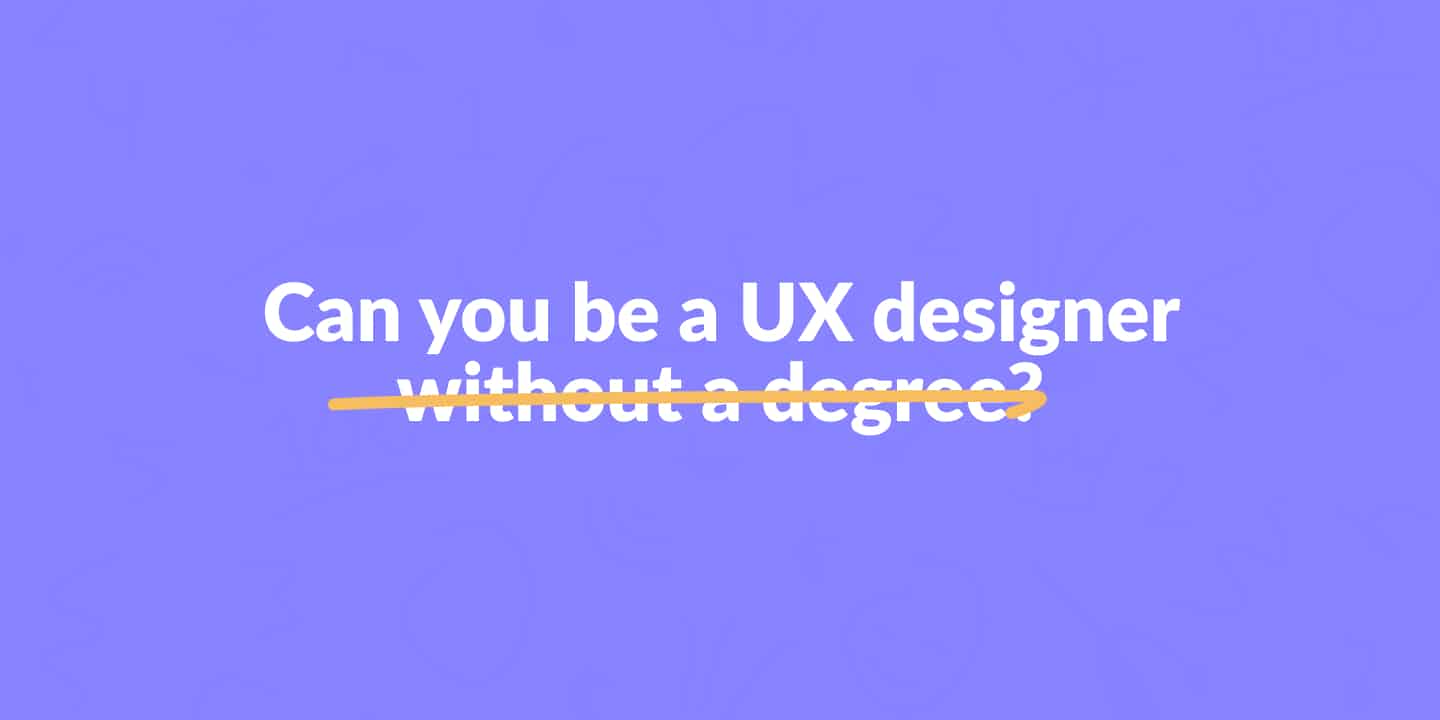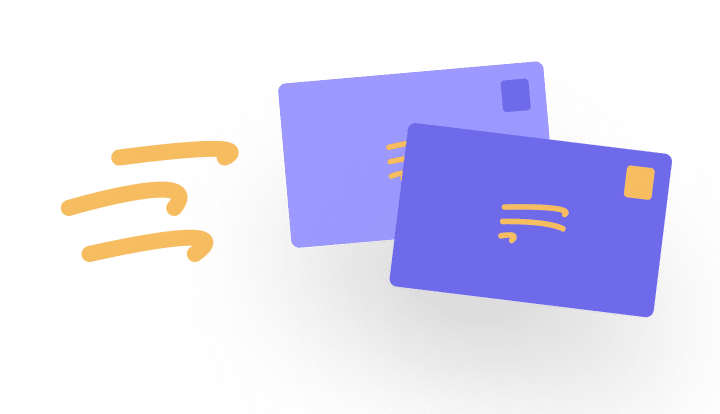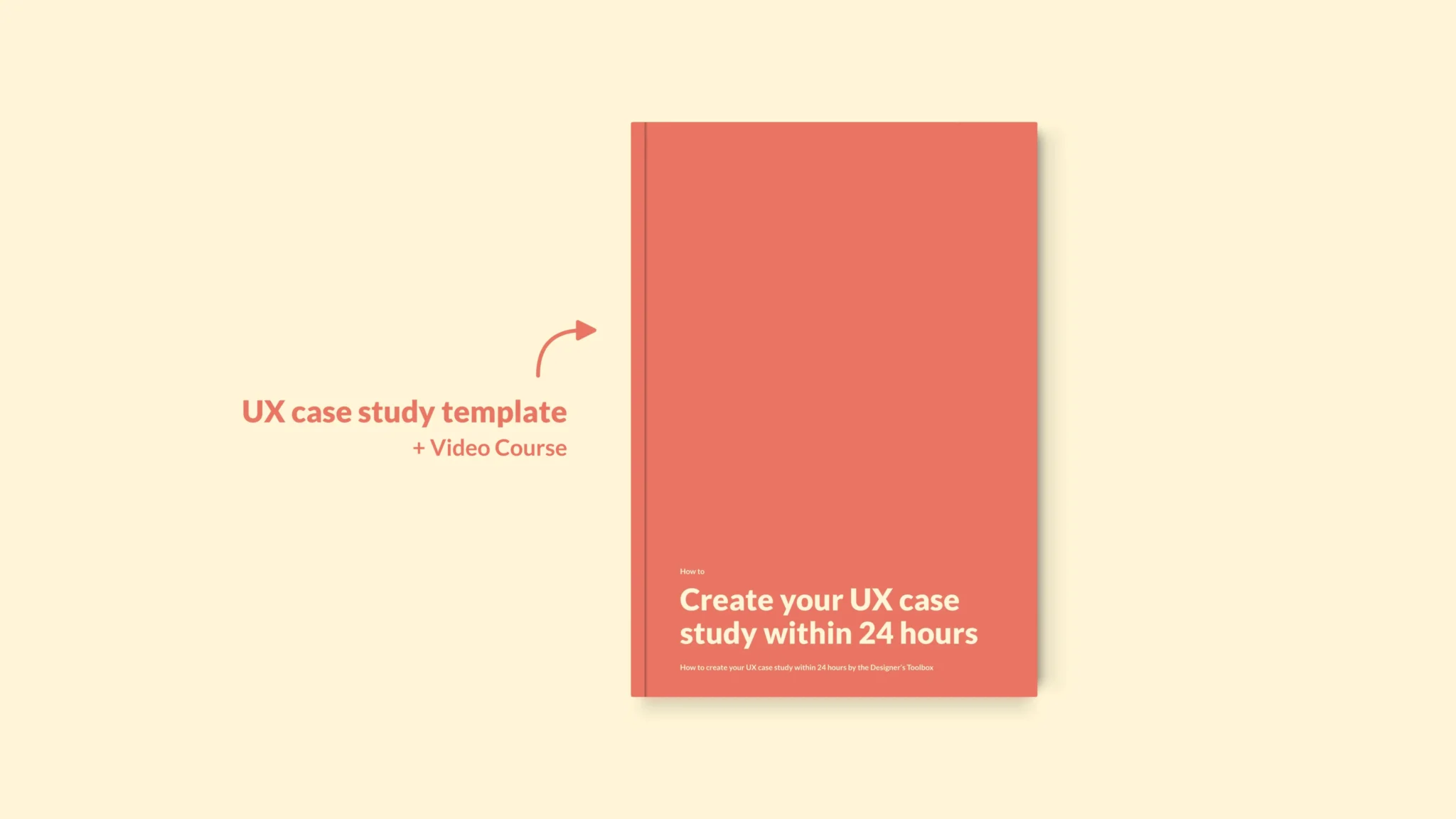Some form of UX education is important to becoming a UX designer. Yet, there’s a lot of uncertainty about whether or not you should spend time and money to get a traditional degree in UX. Here are my two cents on what to do.
- Updated on April 11, 2023

Table of Contents
Can you be a UX designer without a degree?
Yes, you can be a UX designer without a degree. There are many alternatives to classic college degrees today, like UX bootcamps, courses, and company training. Any of these can help you get a job as a UX designer.
However, that doesn’t mean you shouldn’t consider a degree in UX. Yes, it takes a lot of time and effort, but it does prepare you well for your career after the degree.
The field of UX design is still relatively new. Because of this, many designers transitioned from a different design field to UX. Examples include web designers and visual designers that have added user testing and research tasks to their work.
It means they do not have a specific UX degree. Yet, these UX designers have many years of experience, projects, and case studies.
For these designers, experience is more valuable than a UX degree.
Let’s be honest here. Skipping the time and effort it takes to get a UX degree sounds like taking a shortcut. Unfortunately, that’s not the attitude that will get you a job in UX.
You will need to put in the time to build a complete UX profile for yourself if you want to get a job in UX. Can you replace the lack of a UX degree with projects and work experience?
If that’s not the case, a degree in UX would be the better path for you. But if you think you can take the alternative route, keep reading to find out how that works.
The importance of a UX degree
There are some clear benefits to having a degree in UX. For starters, having any form of formal education strengthens your credibility as a designer.
You must know what you’re talking about when a well-known school or university gives you a degree. If they believe in you, so will your next employer.
When applying for a job, there’s usually a job requirement dedicated to your education. Some employers are very strict about this. You’re out if you don’t have the degree they’re looking for.
Another plus to getting a degree in UX is the networking opportunity. During your time in school, you will have to do internships where you meet new people. Your fellow students might end up at companies where they could use your expertise. That could open the door for you at some point.
Finally, you will learn a lot in school. You’ll see everything there is to know about design. This will help you make your choice regarding design fields and which one to pick as your specialty.
How to become a UX designer without a degree
Going for a degree in UX is one way of becoming a UX designer. However, if you decide to go the other way, there are several options you can take.
Keep in mind; this is the road less taken. If you want to continue, here’s our list of UX degree alternatives.
UX books

Increase your UX theory knowledge by reading books by very experienced designers. Reading books is a low-risk and high-reward investment of your time. For just a few dollars, you can learn about UX best practices, ways of working, and design tools.
Here’s an overview of must-read books depending on the type of designer you want to become.
| Design direction | Recommendation |
|---|---|
| UI design | Designing User Interfaces |
| UX design | No Bullshit Guide to UX |
| Getting a job | The UX Jobs Handbook |
If you want to have more books to read, check out my UX reading list here.
Experience
The best way to compensate for not having a formal UX degree is experience. Nobody can argue with your credentials as a designer if you have a portfolio and a resume that shows solid working experience.
Once you have one or two years of experience under your belt, no recruiter will ever look at your UX degree ever again.
By getting work experience, you will create a strong case for yourself. No, you will not have a degree, but you have a portfolio showing your way of working and your willingness to learn and grow as a designer. That’s exactly what companies should be looking for in a junior designer.
I am aware that getting a job without experience is challenging. To make this happen, start by reaching out to local companies. You’d be surprised how many of them could use some design help.
UX bootcamps and courses
If you’re looking for a more lightweight formal education in UX, bootcamps and courses are an excellent alternative for you.
However, some UX bootcamps are almost as expensive and time-consuming as a full college degree in UX. If that is the case, you have to consider if UX bootcamps are worth it.
In terms of courses, there’s a lot you can choose from. You have the free Google UX course, for example. It is a good starting point to get a general overview of UI and UX design.
Here’s an overview of courses to start with, depending on what parts of UX you want to work in.
| Design direction | Recommendation |
|---|---|
| UI design | Boring UI Course |
| UX design | UX Career Track |
When picking a bootcamp or course, keep the following things in mind.
- Pricing. Some bootcamps can be very expensive, but they’re not always worth the price. Compare the contents of each bootcamp to find the best price-to-content ratio.
- Job guarantee. Some bootcamps offer a job guarantee. Check if this is actually the case. Also, be aware of contracts that cause you to give a part of your salary to the bootcamp organizer if you get a job through them.
Next steps
Deciding your way of getting into UX is a hard choice to make. This post shows you the options you have. Regardless of your choice, your next step will be to create a UX portfolio.
If you go for a degree, you’ll probably work on some school projects. You can write a UX case study about that project!
However, if you decide to take the alternative route, many ideas can help you become a UX designer without experience.

About the author
Hi! I'm Nick Groeneveld, a senior designer from the Netherlands with experience in UX, visual design, and research. I'm a UX coach that supports other designers and have completed design projects in finance, tech, and the public sector.
☎️ Book a 1:1 mentor meeting or let's connect on LinkedIn and Twitter.



